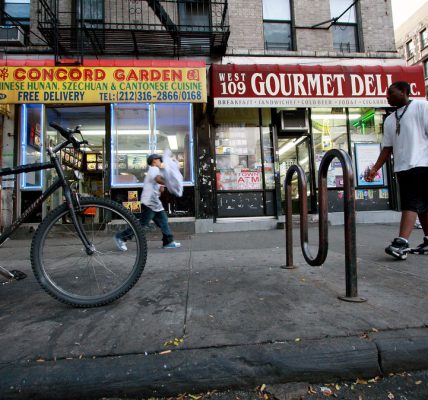In Iran the destitute sell their kidneys: These congressmen want to bring it to America
Today in the UK, despite ample disagreement and debate over the role of government in regulating the free market and our lives, there are a few things even the most libertarian minded ‘Trussites’ agree on. We can not sell ourselves in bondage; child labour shouldn’t be allowed, and, of course, no one would be crazy enough to suggest we should carve ourselves open and sell our kidneys, right?
Not so in the halls of Congress, where representatives Malliotakis (R-NY) and Harder (D-CA) have introduced ‘The End Kidneys Death Act’1, a bill that seeks to end the longstanding prohibition against paying living donors for their kidneys, by introducing a tax credit worth an eye-watering 50,000 USD for those brave enough to volunteer for the surgery. This would make the United States only the second country in the world, alongside the theocratic Islamic Republic of Iran, where selling your kidney is not only legal, but sponsored by the government. The motivation is simple, the United States has a crippling kidney shortage2, that if only a financial incentive was provided to donors, could be alleviated. The shortage is responsible for the deaths of thousands, and, with increasing medical advancements in other areas of health treatment, is slated to grow3. Your immediate reaction to this idea might be similar to mine and many others, shock at the suggestion that those desperate enough to sell off their kidneys should not only be allowed, but endorsed by the government. Whilst we only need one kidney to function healthily, it has long been assumed that allowing for the sales of one’s organs, creates a horrific and exploitative system, where the poor desperately auction off their bodies to pay off their debts. This reaction is understandable, as critics to the idea have long been able to point to the only example of it in practice, the nation of Iran, where the reality is as dystopian as one might believe.
According to the BBC, kidney donors in Iran are not made up of altruists wanting to make a difference, but desperate people in desperate situations, who use donation as a last resort to settle outstanding debts and avoid financial ruin4. Among the victims is Rezaei, an air-conditioner supplier, who, after his business failed, was forced to sell his kidney to avoid debtor’s jail5. Another attempts to sell his kidney to pay for his child’s medical bills. Despite their desperation, they are only compensated a paltry sum by the government, around £650, and whatever the recipient is willing to pay, around £1,600 in the BBC’s example. Despite this ghoulishness, the market functions like any other, with desperate Iranians posting advertisements for the kidneys with descriptors such as “young” and “healthy”. Nevertheless the Iranian government allows the trade, seeing it as necessary to ensure there is an adequate supply of kidneys. Nasser Simforoosh, a doctor at one of the hospitals where the transplants take place argues that this provides a decent alternative to the other options, such as “stealing or smuggling”. Selling one’s kidney may indeed be preferable to a life of crime, yet this statement only demonstrates the extreme deprivation these Iranians are subject to. The Iranian example demonstrates clearly that people will be willing to sell their kidneys if desperate enough, with all the exploitation that entails.
Whilst for many Iran’s current situation provides ample proof as to why such a policy should never be allowed in America, CATO institute alumni and libertarian policy writer Ilya Somin sees it differently. “Iran, the one nation where payment for kidney donations is currently permitted, is also the only one that does not have a waiting list for kidneys.”6. Unlike in the United States, where thousands die on year long waitlists, and even more endure the hardship that is dialysis, Iran proves that the status quo is a choice. The economic argument is simple, the medical cost of dialysis over one’s lifetime is numbered in the millions7, not even including the human cost of the people who die waiting for a kidney. The millions in saved medical costs alone would be more than enough to provide a large financial incentive to be able to meet the demand for kidneys. Whilst some critics have argued that such a market would be unsuccessful, with the availability of payment creating a crowding out effect, where individuals are less willing to part with their kidneys for free8, as many do today, the Iranian experiment proves this to be decisively false. As Somin declares: “It’s basic Economics 101”.9 Allowing for the sale of kidneys would end the shortage. We should not underestimate the monumental achievement that would be. Scholars have estimated that ending the shortage could save up to 47,000 lives per year10, and free tens of thousands from the brutal daily grind that is living on dialysis. Importantly, the bill currently going through congress has a few differences to the Iran model. It runs entirely through government subsidies, so everyone will have equal access to a kidney donation, and there will be no haggling over the price of a kidney. Since it is structured as a tax credit, the poorest will not be able to use donations to fulfil a short-term need for cash, which restricts its usefulness for the most destitute. Whether these changes are meaningfully different enough as to not constitute exploitation is up to you.
Despite the myriad of ethical concerns, one important fact should not be lost. This proposal is not just a solution, but the only solution. Donations from cadavers are nowhere close to meeting demand; and efforts to increase donation rates have been largely ineffective. Dialysis technology cannot replicate having functioning kidneys, and the creation of artificial kidneys is still theoretical. You may, as I do, baulk at the suggestion that poor people in need of money should be able to sell off a part of themselves; you probably find libertarian arguments of ‘economic liberty’ utterly unconvincing when applied to such a clear cut case of economic exploitation. Nevertheless, in this case, the free market really does provide; and opposing it means tacitly endorsing the preventable deaths of tens of thousands. The ethical conundrum is not an easy one, and the ethical taboo against paid donations is strong. Even so, there is now a growing group of activists who are trying to convince you that the practice is ethical, and their arguments are gaining steam. With supportive articles in Vox and the New York Times, along with the endorsement of eleven congressmen to date, ‘the end kidneys death act’ could become law in a matter of months, bringing the previously inconceivable into reality.
Citations
[1] The End Kidneys Death Act (H.R.9275), Congress.Gov
[2] Matas, A. (05/24/2023). The Organ Shortage Continues to Be a Crisis for Patients With End-stage Kidney Disease. JAMA Surgery.
doi:10.1001/jamasurg.2023.0526
[3]Anne, F et al. (2024, April 03). Chronic kidney disease and the global public health agenda: an international consensus. Nature.
https://www.nature.com/articles/s41581-024-00820-6
[4]Grapengiesser, M. (2006, October 27). Iran kidney sale. BBC NEWS. http://news.bbc.co.uk/1/hi/programmes/this_world/6080328.stm
[5]Bengali, S. (2017, October 15). ‘Kidney for sale’: Iran has a legal market for the organs, but the system doesn’t always work. Los Angeles Times. https://www.latimes.com/world/middleeast/la-fg-iran-kidney-20171015-story.html
[6] Somin, I. (2024, September). The Presumptive Case for Organ Markets. Antonin Scalia Law School, George Mason University. https://papers.ssrn.com/sol3/papers.cfm?abstract_id=4949185
[7] Somin, I. Page 3
[8] O’Neill, S. (2024, August 26). People die waiting for a kidney transplant. Should donors be compensated? NPR. https://www.npr.org/sections/shots-health-news/2024/08/26/nx-s1-5086459/theres-a-severe-kidney-shortage-should-donors-be-compensated
[9] Somin, I, et al. (2024, April 18). Two Cheers for the Proposed End Kidney Deaths Act. Reason Magazine. https://reason.com/volokh/2024/04/18/two-cheers-for-the-proposed-end-kidney-deaths-act/
[10] Frank, M, Philip, H, Glenn, C, Thomas, P, and John, R, (2022) “Projecting the Economic Impact of Compensating Living Kidney Donors in the United States: Cost-Benefit Analysis Demonstrates Substantial Patient and Societal Gain,” Value Health.






